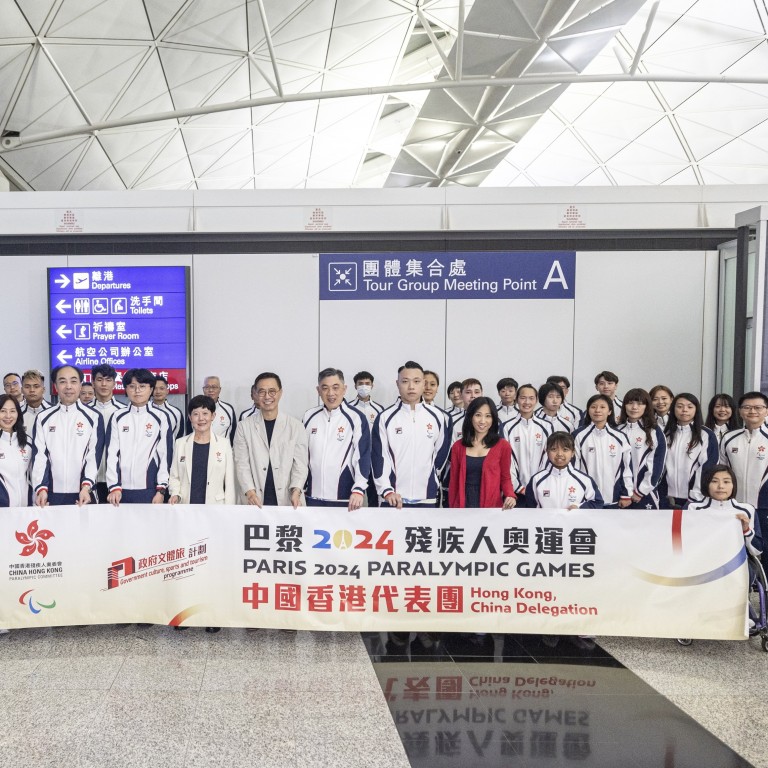
Paris Paralympics: ‘trying new sports’ may be best way to improve Hong Kong’s future haul
- Hong Kong’s team will be out to at least match their performance at the Tokyo Games, but future growth may rely on expanding to new sports
Hong Kong’s Paris Paralympics delegation chief said he was optimistic about the future of para-sports but suggest delving into new sports could be the quickest way to improve on city’s track record.
John Leung Lai-yin, who is chairman of the Sports Association for the Physically Disabled of Hong Kong, China (HKSAPD), is leading a team of 23 athletes across eight sports to the Paris Paralympics, which runs from Wednesday to September 8.
Three years ago in Tokyo, Hong Kong took home two silvers and three bronzes – the first time they returned without a gold medal since Seoul in 1988.
Leung said he hoped the delegation could at least match the haul from Japan.
“We are still competitive and we have young and upcoming athletes in swimming and table tennis,” he said. “Winning gold medals, however, could be more difficult.

“As at the Olympics, China’s Paralympics development has been rapid, and they have been able to hold on to the top spots in several sports, which makes winning medals [for other teams] more difficult.”
Looking further ahead, Leung said he remained “cautiously optimistic” about the future of para-sports in the city.
“It has never been easy but I wouldn’t say it’s getting more difficult,” he said. “We have great support from the government and the funding allows athletes to train without worries.
“But we aim to serve the entire disabled community and have covered everything from interest classes to the Paralympics level. So apart from recruiting more young para-athletes, we need to try developing new sports.”
Leung said curling was among the sports HKSAPD was eager to explore as Hong Kong had yet to participate in the Winter Paralympics since they began in 1972.
“The shortage of venues makes promoting curling in Hong Kong more difficult, but we have to include more sports for the disabled persons to choose from because they do not all have the same interests,” he said.
Anson Lai Yee-chuen, chairman of HKSAPD’s volunteer service development subcommittee, added that doing better at para sports was also about “educating” disabled people to come out and play.
“We wish to reach out to those disabled students who study at the mainstream schools because they are the most suitable for sports – their ability to look after themselves and their mentality already speak volumes.
“We also want to spread the message to disabled persons who don’t exercise – we might well find the next [five-time Paralympian] So Wa-wai.”

“The difficulty, however, is persuading their parents, because it is often the case that they do not want their children at mainstream schools to be labelled again – but that is all about communication and education.”
To cater for the needs of the para-athletes, HKSAPD also needed a great number of volunteers and the Friends of Para Sports was established to focus on helping the development of the 11 para-sports in Hong Kong.
“From hosting tournaments and events to promotional tours, and helping train our athletes, our 200-plus volunteers have been very helpful,” Lai said.
“We have provided them with training and sports knowledge workshops, teaching them how to ‘watch’ the sports they were serving.
“We wish it to remain a give-and-take process so that we can always keep this group of people together, so that we’re able to deliver the message about Paralympics to the broader public.”

 - Mike Chan.jpeg?itok=EQbwYm3R&v=1669714688)